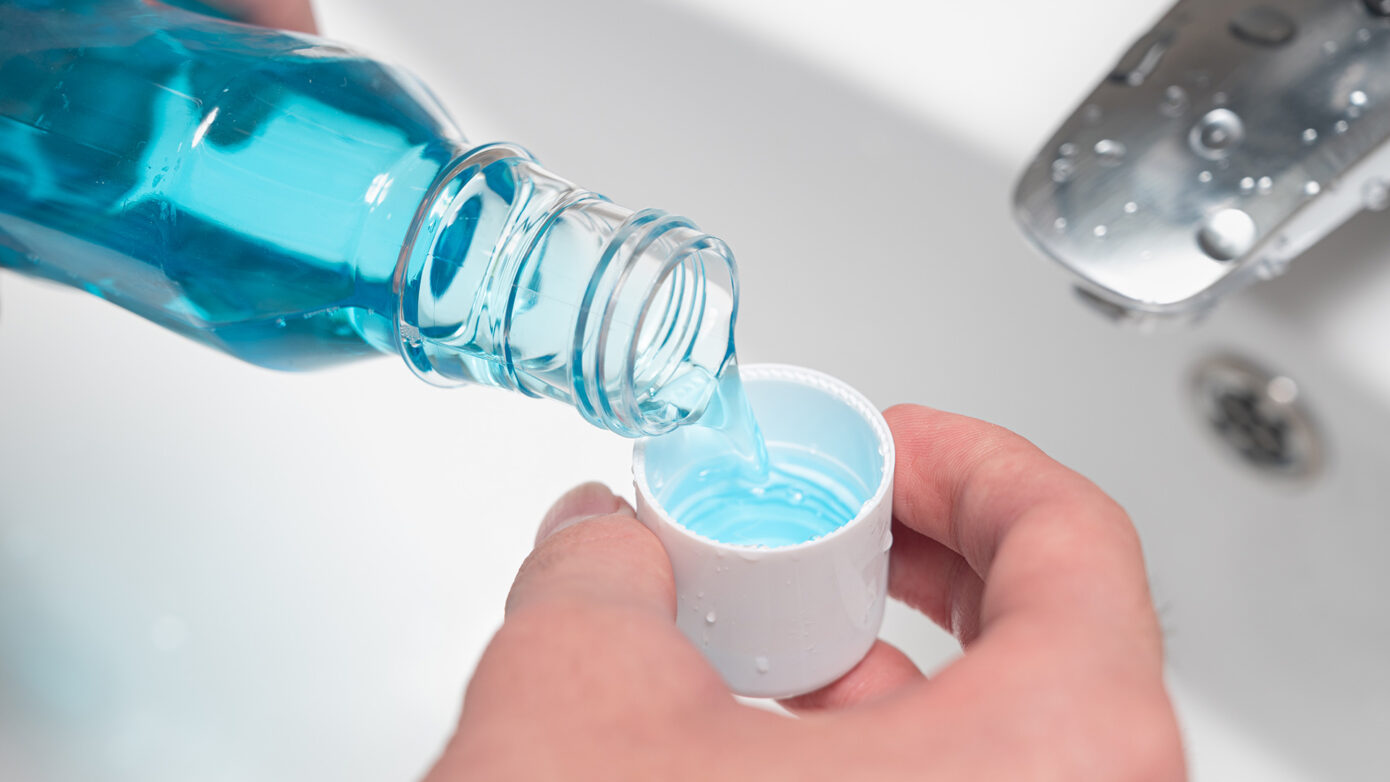Xylitol, a naturally-occurring 5-carbon sugar alcohol found in small amounts in berries, mushrooms, corn cob, and vegetables, has a sweet taste and is not metabolized by oral bacteria to acidic end-products that trigger the development of dental caries. A dentist’s dream, xylitol – as opposed to fermentable sugars – is the sweetener in some
sugar-free chewing gums and candies.
Beneficial Aspects of Xylitol
To understand the beneficial aspects of xylitol it is important to review the process leading to tooth decay.
The consumption of fermentable sugars, such as glucose, fructose, and sucrose, serve as a food source for oral bacteria. The oral bacteria proliferate and form a biofilm, termed plaque, over the tooth surface.Within the biofilm, bacteria metabolize fermentable sugars to yield acidic end-products which lower the pH. Lowered pH favors the de-mineralization of calcium and phosphate from the tooth’s surface enamel. However, eventually, the intake of fermentable sugars decreases, causing the pH to increase, now favoring the re-ineralization of the enamel, with the minerals dissolved in the saliva reincorporated into the enamel.
The balance between de-mineralization and subsequent re-mineralization is not the problem, but rather when the cycle is disrupted in favor of the de-mineralization of the enamel, resulting in a softened calcium-deficient tooth surface that becomes a region for
bacterial accumulation and metabolism, eventually causing a “cavity” – dental caries.
Through several mechanisms xylitol, may reduce the incidence of dental caries:
- Xylitol is not metabolized by oral bacteria, to acidic end products. As acid-producing oral bacteria cannot ingest xylitol, their proliferation is limited and they do not stick well to the tooth surface, thus formation of a bacterial biofilm (plaque) is curtailed.
- Products containing xylitol stimulate the production of saliva, which is inhibitory to the formation of dental caries. Thus, in addition to preventing dental caries, xylitol prevents dry mouth. Saliva, acting as a flushing and cleansing mechanism, clears the oral cavity of foods and of bacteria, acts as a buffer to keep the pH neutral, delivers minerals for the re-mineralization of the enamel, and has antibacterial properties.
- Xylitol, itself, has antibacterial properties, which may explain its usage as a syrup, nasal spray, lozenge, and chewing gum to reduce the occurrence of middle ear infection in preschoolers.
- Xylitol is effective in inducing re-mineralization of the deeper layers of enamel.
When used as a cavity preventive, children and adults are limited to 7 to 20 grams/day, typically divided into 3 to 5 doses. Sugar averages 3.87 calories/gram. Xylitol is not calorie-free, but contains about 2.6 calories/gram and over consumption can cause weight gain and affect blood sugar levels.
The Benefits of Xylitol for Dental Health
Xylitol, a naturally-occurring sugar alcohol, is gaining recognition for its significant benefits in promoting dental health. Unlike fermentable sugars that contribute to tooth decay, xylitol stands out as a sweetener that does not get metabolized by oral bacteria into acidic byproducts that lead to cavities. This unique property makes xylitol a valuable tool in preventing dental caries and maintaining oral hygiene.
Mechanisms of Action
- Inhibiting Bacterial Growth: Xylitol restricts the growth of acid-producing oral bacteria by serving as a non-metabolizable alternative. This limitation on bacterial proliferation reduces the formation of plaque on teeth, thereby lowering the risk of cavities.
- Stimulating Saliva Production: Products containing xylitol stimulate saliva production, which plays a crucial role in preventing dental caries. Saliva acts as a natural defense mechanism by flushing out food particles and bacteria, maintaining a neutral pH balance, delivering essential minerals for enamel re-mineralization, and possessing antibacterial properties.
- Antibacterial Properties: Xylitol itself exhibits antibacterial properties, making it effective in various forms such as syrups, nasal sprays, lozenges, and chewing gums to combat infections like middle ear infections in children.
- Promoting Re-mineralization: Xylitol aids in the re-mineralization of enamel, particularly in the deeper layers, contributing to the strengthening and protection of teeth against decay.
Safe Usage Guidelines
When used as a cavity preventive measure, it is recommended that both children and adults limit their daily intake of xylitol to 7 to 20 grams, divided into 3 to 5 doses. While xylitol is not calorie-free, with approximately 2.6 calories per gram, excessive consumption can lead to weight gain and impact blood sugar levels.
In conclusion, incorporating xylitol into your oral care routine through sugar-free gums or candies can be a beneficial strategy for maintaining good dental health. By understanding the mechanisms through which xylitol operates to prevent cavities and following safe usage guidelines, individuals can leverage this natural sweetener to promote healthier teeth and gums.





